Koil Alwar Thirumanjanam is the cleansing and purification ceremony at the holy Tirumala temple. “Koil” in Tamil language means holy shrine, “Alwar” means devotee and “Tirumanjanam” means cleansing with aromatic ingredients.
Koil Alwar Thirumanjanam is a cleansing and purification ceremony of the whole sanctum sanctorum area of the holy Tirumala temple and its entire premises by the devotees of the holy Lord Sri Venkateswara.
However, visiting devotees are not permitted to take part in this ceremony and only the Chairman, the Executive Officer of the TTD board and their subordinates participate in this sacred procedure and assist the temple priests throughout the process.
During the whole process, all the coverings on the Moola Virat (Principal Deity) are temporarily removed and his deity is fully topped up with a water-proof covering.
All the other processional deities that are there inside the Garbha Griha are then taken out.
A herbal paste containing a rich mixture of refined camphor, high quality sandalwood powder, vermilion, turmeric and other ingredients, which act as disinfectants are applied to all the pillars, walls including the ceiling inside the sanctum sanctorum as well as at all other sub-temples situated inside the main temple complex.
After this all the places are thoroughly washed with water.
This same religious exercise is also followed at all the other sub-temples that are there inside the temple complex.
Soon after the completion of all the religious formalities, the processional deities are then placed back in their original position.
The Moola Virat too is then fully decorated with all the rich silk robes and later purification pooja and naivedyam and Karppora Aarati are offered to Him.
It takes about three to four hours for this entire sacred procedure of Koil Alwar Thirumanjanam to complete.
During which period the holy Tirumala Temple is closed down and devotees are not allowed to enter the premises for darshan.
This periodical festival of Koil Alwar Thirumanjanam is performed strictly according to Agama Sutras and as a prelude to the four important festivals of Ugadi, Anivara Asthanam, Vaikunta Ekadasi and the annual Brahmotsavams that are celebrated annually at the holy Tirumala hill shrine.

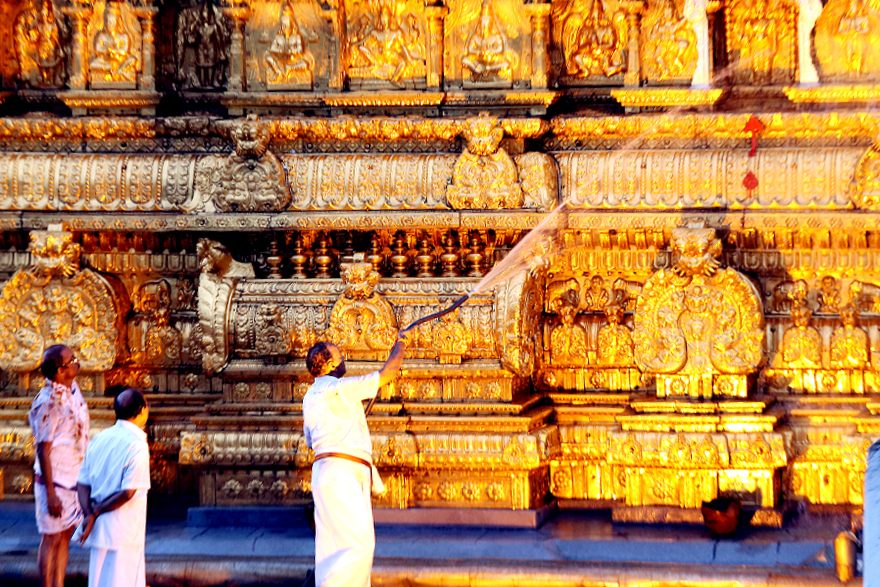
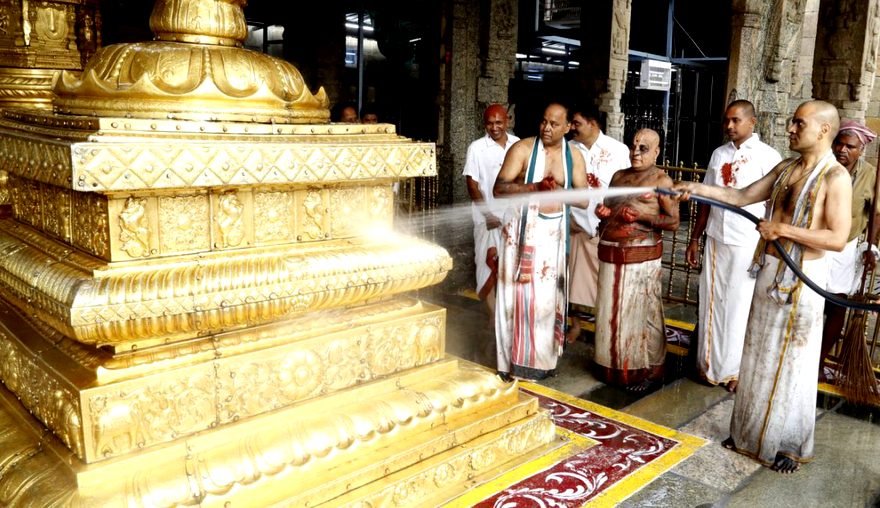
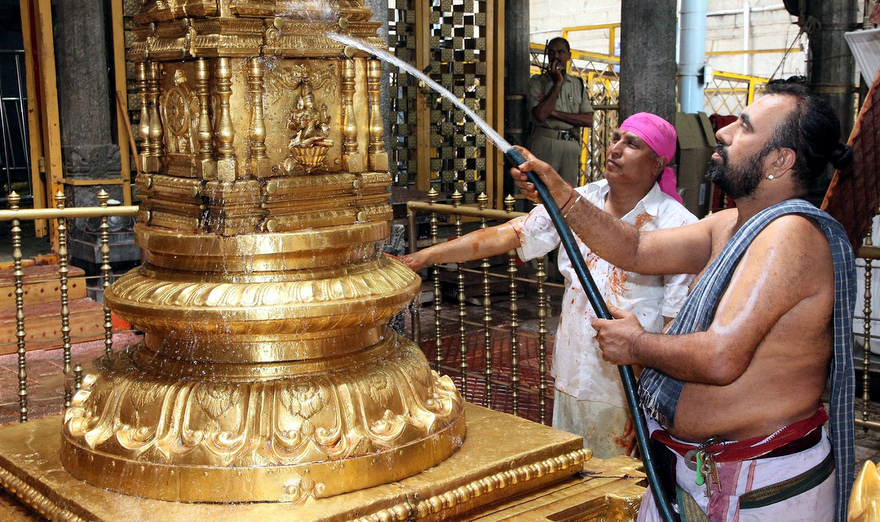
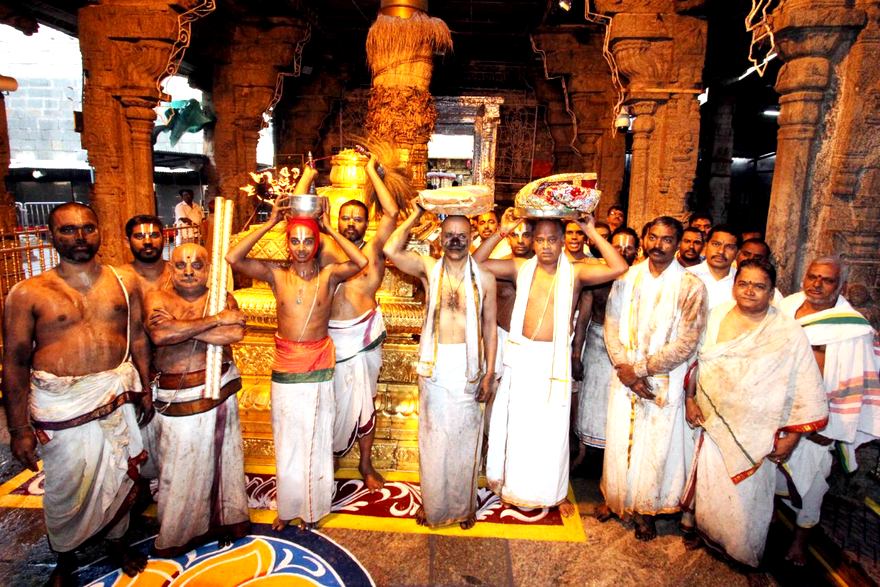
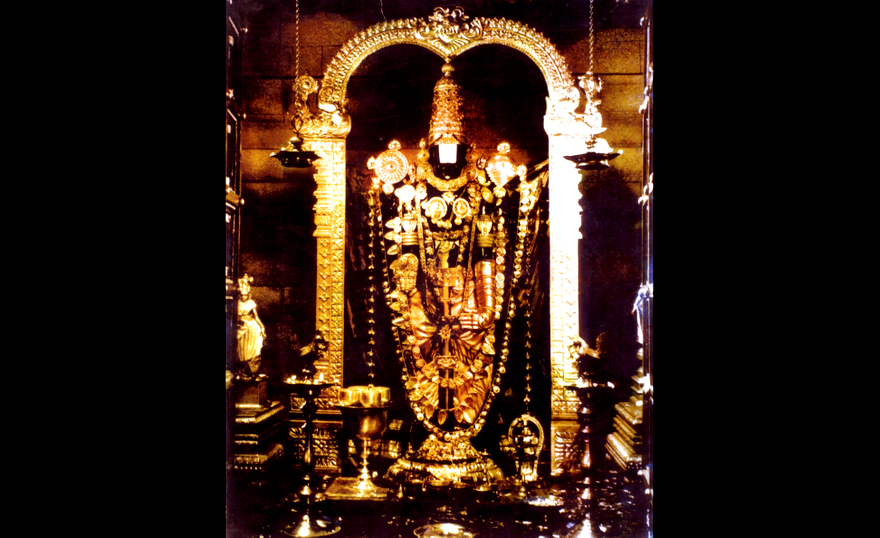
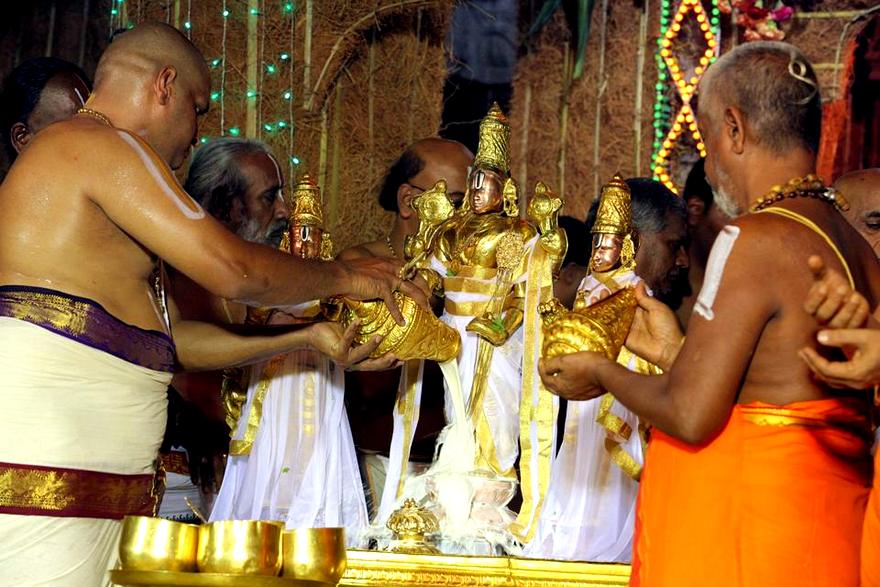
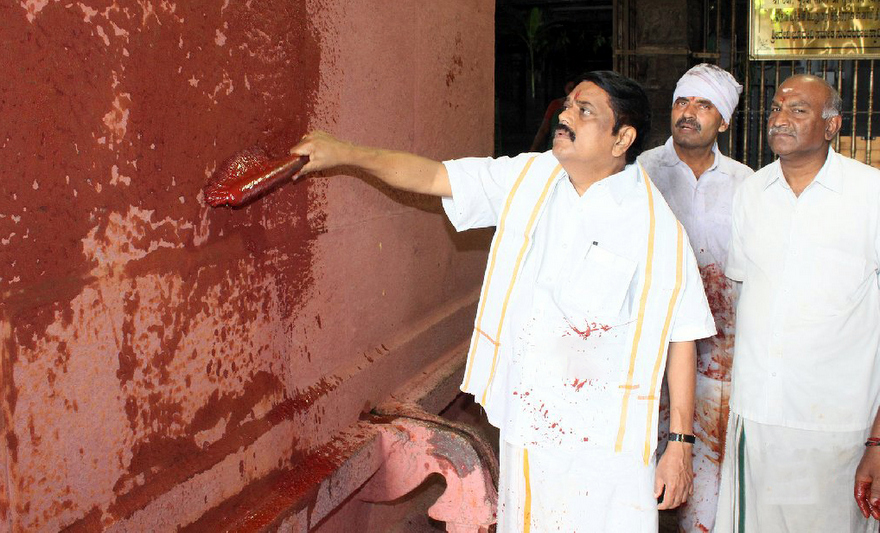
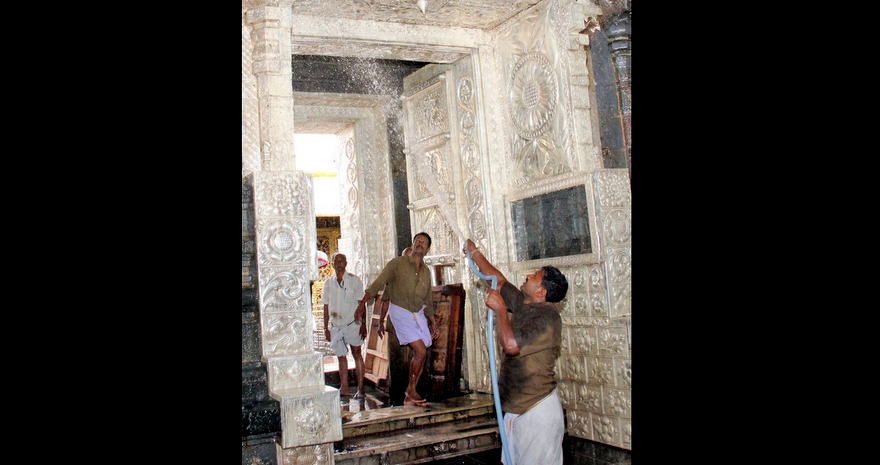
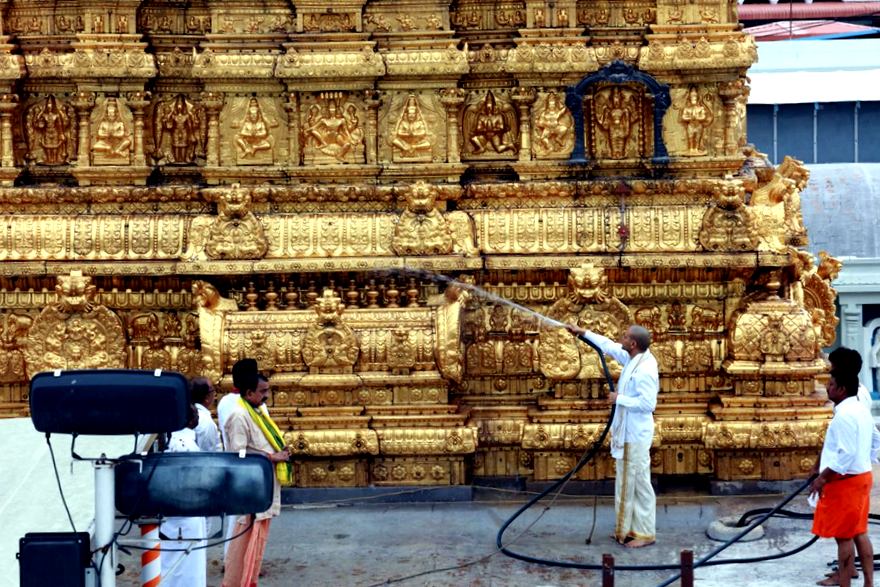
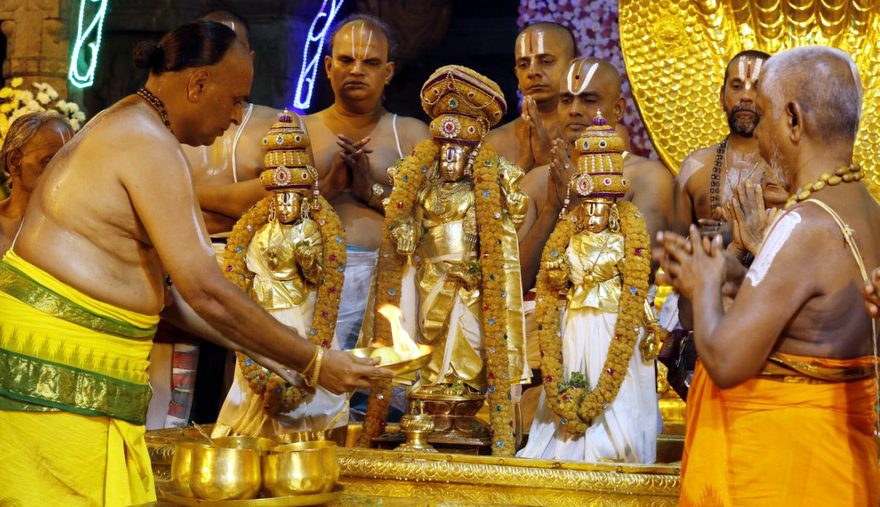
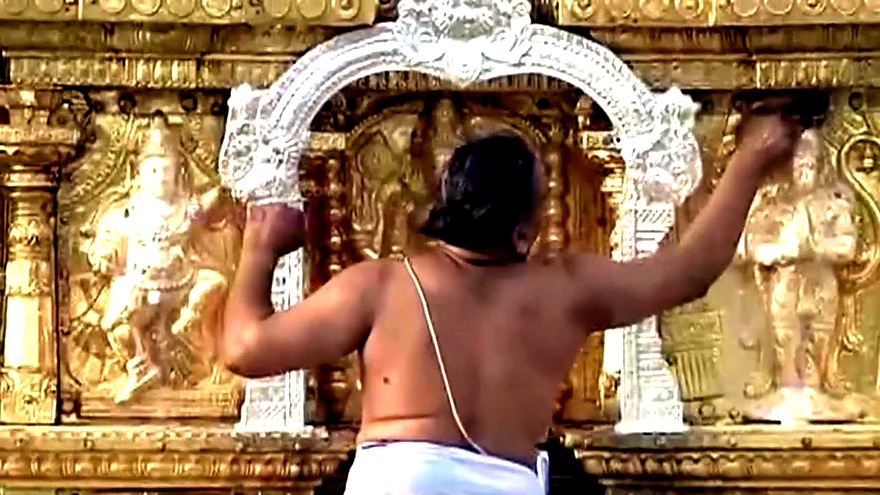
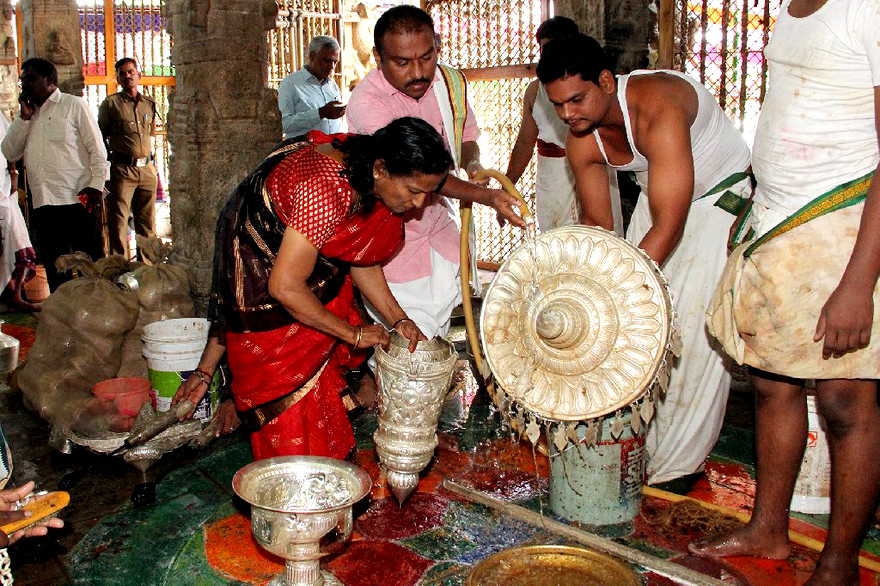

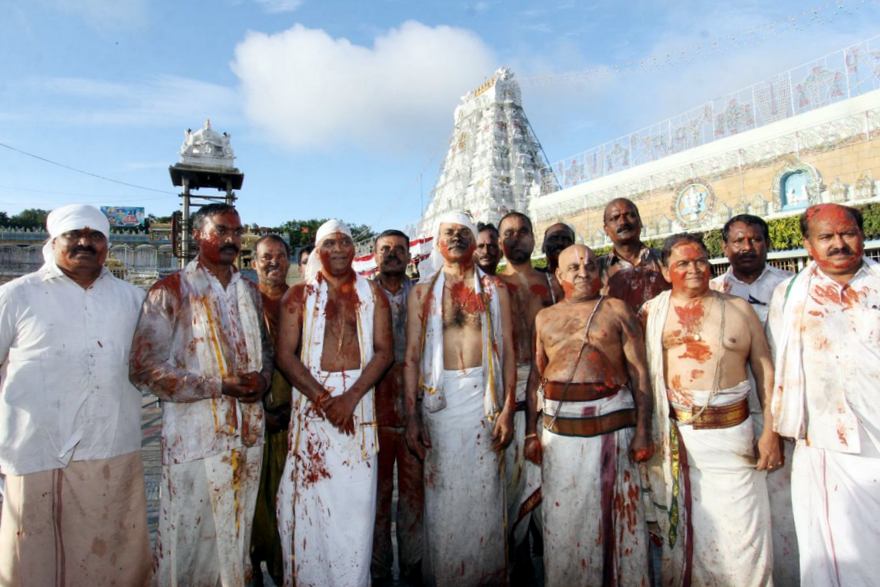

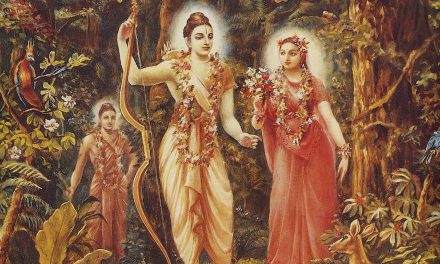
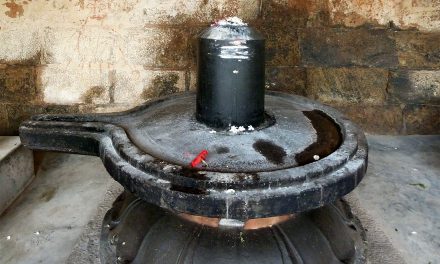









Amazing Hinduism ….. Not only cleanses us but also Himself …..
Wow. Wonderful. The greatest God ever known to surface of mankind. My Koti Koti Koti Pranamam to the Lord of Infinite Universes
Congratulations to the entire team for all their hard work. This is outstanding and astonishing. I am proud to be an Hindhu Tamil. May God Bless us all.
Many thanks and best regards always- for the opportunity—sastry
A very scientific and rich cleansing practice adopted as per Shastras which should be continued.
Amazing and great full Experience. Feel blessed to see Swamy Venkatesh. Periodically seeing Swamy is just beautiful experience. Namo Venkatesh Namo Tirumalesa. Miss not seeing the beautiful statues of Lord Venkateshwara, Padmavathi and Lakshmi Devi. Such an experience to be in his presence is beyond words. Swamiye Sharanam.
Greatest experience to be Lord Venkateshwara. Hardly a satisfaction because I just have a fleeting moment to experience the presence of Almighty God..
It is wonderful and we are lucky to see Thirumalai Temple washing.
Thanks AUM Nomo Narayana
It is the greatest fortune of the executive officer, archakas and other employees directly participating in this rarest opportunity. I envy them. OM NAMO VENKATESAYA.